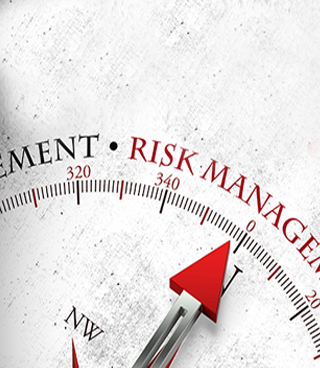Introduction
“Mutual funds are subject to market risk. Please read the offer document carefully before investing.”
You must have heard the same in umpteenth disclaimers, but are you really aware of the different investment risks, posing a threat to your hard-earned money.
The statutory warning in the disclaimer is an attempt to wake you up from your slumber that has been keeping you oblivious of the different investment risks you could confront while investing in mutual funds.
To keep it simple, mutual funds have been classified majorly into three categories i.e. equity funds, debt funds, and hybrid funds.
- Equity funds are the mutual funds that allocate 80% of their assets in equity while allocating 20% in debt & cash. These funds invest in the shares of companies.
- Debt funds are the mutual funds that allocate 80% of their assets in debt while allocating 20% in cash. These funds invest in securities such as bills and FDs.
- Hybrid funds are the mutual funds that allocate 60% of their assets in equity while allocating 40% in debt. These funds invest in both equity and debt. Hybrid funds are a mix of both equity and debt funds.
Now, no matter which mutual fund you invest in, each poses a different investment risk such as volatility risk, performance risk, interest rate sensitivity risk, liquidity risk, and credit risk. Let us now dive deep to understand these risks better which will help you tackle different investment risks in an efficient manner.
Investment Risks Posed by Equity Funds
The following are some investment risks posed by Equity funds:
MANAGEMENT RISK
The fund manager plays an extremely vital role in alleviating the risks entailed by mutual fund investments. Sudden changes in the management team and their approach could affect returns on investments a great deal. Hence, it is a prerequisite to ensure transparency and corporate governance for leading a positive impact on a firm’s share price.
VOLATILITY RISK
An equity fund invests at most 80% of their assets in equity and equity related instruments and hence, the performance of an equity fund is directly proportional to the performance of companies. Changes in government, SEBI, and RBI policies can directly impact the value of the stocks of a company either in a positive or negative way. Generally, large-cap mutual funds are less susceptible to volatility in comparison with small-cap and mid-cap mutual funds. A diversified equity fund is comparatively less liable to get affected by volatility or sudden changes.
LIQUIDITY RISK
It is a common knowledge that investing in mutual funds for a longer period of time always has higher chances of yielding a profit on investments. But sometimes due to the lock-in period and unavailability of buyers, the liquidity risk increases. Also, you cannot do anything during the lock-in period. So, the best way to prevent liquidity risk is by keeping a diversified portfolio and selecting mutual funds wisely.
Investment Risks Posed by Debt Funds
The following are some investment risks posed by debt funds:
INFLATION RISK
Inflation risk is also known as the purchasing power risk. Tools like bonds and money market have a fixed coupon rate. Inflation mitigates the coupon rate earnings that the debt fund is bound to receive. Inflation has detrimental effects on the potential returns of an investor. On the contrary, lower levels of inflation proliferate the value of debt fund investments.
INTEREST RATE RISK
The price of a debt fund tool is indirectly proportional to the rate of interest. Bonds are less productive and their values hit rock-bottom when interest rates shoot up and vice versa. The debt funds that have a shorter lock-in period are less susceptible to interest rate risk as compared to the debt funds that hit maturity late.
CREDIT RISK
Debt funds allocate funds mostly in government securities, corporate bonds, certificates of deposit (CDs), commercial papers, etc. There are different credit rating agencies such as CRISIL, ICRA, Fitch, and Brickworks, that are responsible for rating debt funds on the basis of their credit value. A higher rated debt fund offers maximum credit value, whereas a lower rated debt fund offers the lowest credit value.
Conclusion
Investing in mutual funds can put your money to work and allow you to garner a large amount of wealth in the long run. Hence, diversification and profound knowledge of different investment risks are important and can help you play defense and plan better for the future innings of your life.



